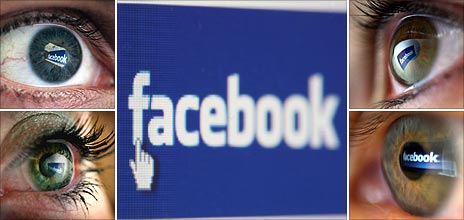Here’s a big ol’ list of people writing about my work. If this seems overwhelming, you might want to see just the highlights. Yes, I know that I need to update this list with more recent press! Stay tuned.
 10 Books That Help Leaders Keep Their Skills Sharp by Michael Koopman. Business Insider, Dec. 3, 2012. “The changing face of business requires your company to adopt a specific focus in order to keep up with those changes. However, it can be difficult to intuitively know how to realign your business practices in a modern, interconnected world.” Koopman suggests his picks for the best books to help you orient your leadership in the best possible direction.
10 Books That Help Leaders Keep Their Skills Sharp by Michael Koopman. Business Insider, Dec. 3, 2012. “The changing face of business requires your company to adopt a specific focus in order to keep up with those changes. However, it can be difficult to intuitively know how to realign your business practices in a modern, interconnected world.” Koopman suggests his picks for the best books to help you orient your leadership in the best possible direction.
HR Should Introduce the Social Possibilities by Charlie Judy. October 23, 2012. “Marcia closed down HR Executive’s 15th Annual Technology Conference in Chicago this year to a packed house of technologists, HR professionals, HR vendors, press, and pundits. We’d just spent two and half days cramming our heads full of things we knew we should be doing, but weren’t. Conferences like #HRTech are meant to challenge us, and I’m glad. But man, there’s so much to do! Marcia certainly didn’t cut us a break in her closing speech. In fact, I’d say she delivered the one-two punch we all needed…”
HR Technology Conference preview: Reality check for social, cloud HR? by Emma Snider. October 5, 2012. This year’s HR Technology Conference in Chicago involved discussions about cloud, mobile and social HR — and how users are anxious to find practical uses for these much-hyped technologies.
 “Rogue IT” is about to wreak havoc at work. by Ryan Holmes. Fortune, August 9, 2012. Rogue IT is the name given to the informal, ad hoc software and devices brought by employees into the workplace. If you’ve ever taken your own iPad to work or used cloud-based software like Evernote or Dropbox in the office, you may well be an offender. And you’re not alone.
“Rogue IT” is about to wreak havoc at work. by Ryan Holmes. Fortune, August 9, 2012. Rogue IT is the name given to the informal, ad hoc software and devices brought by employees into the workplace. If you’ve ever taken your own iPad to work or used cloud-based software like Evernote or Dropbox in the office, you may well be an offender. And you’re not alone.
The Marcia Conner Interview by Abhijit Bhaduri. Aug. 5, 2012. Suggestions for employees learning at every level within an organization, ways to leverage technology to improve learning opportunities in organizations and how to build your “Curiosity Muscle.”
Marcia Conner: How an IR major became an expert in organizational learning Interview by Frans Johansson. The Medici Group, Aug. 2, 2012. Over the summer Marcia talked with Frans about how an international relations major became a thought leader in organizational learning, and how she harnessed serendipity in her own career.
Marcia Conner on “The New Social Learning” FutureofEducation.com with Steve Hargadon. July 5, 2012. In depth conversation about building “learning cultures” and “communities of learners,” and to draw all kinds of great connections–from “making learning dramatically more dynamic, stimulating, enjoyable, and effective” to enabling students to “connect, collaborate, and innovate on levels never before dreamed of.”
 Max Your Motivation [pdf] by Leslie Goldman. Natural Health Magazine, February 2012. Want to become a new and improved you this year? This quiz will help you pinpoint what inspires you to action and provide you with the tools to finally achieve your goals. Loaded with websites to visit, tips on how to get healthier, and oh yeah, a close look at what motivates you to workout! For example, “You may think ‘downtime’ is another name for ‘unproductive time,’ but a short stretch break or a five-minute walk will boost your efficiency and, hence, get you to your goal faster than you might think.”
Max Your Motivation [pdf] by Leslie Goldman. Natural Health Magazine, February 2012. Want to become a new and improved you this year? This quiz will help you pinpoint what inspires you to action and provide you with the tools to finally achieve your goals. Loaded with websites to visit, tips on how to get healthier, and oh yeah, a close look at what motivates you to workout! For example, “You may think ‘downtime’ is another name for ‘unproductive time,’ but a short stretch break or a five-minute walk will boost your efficiency and, hence, get you to your goal faster than you might think.”
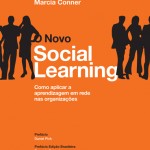 Social in Construction Technology Business (Portuguese). December 5, 2011. “According to a study of the American Institute Nucleus Research, which specializes in research focusing on information technology and consulting services, the use of social media by companies in order to meet customers, will be on top of investments in 2012. The study shows that companies will use the “social technology to build productive business,” and this trend is already seen in Brazilian companies. Following this trend, the Evora Publisher launches this month The New Social Learning – how to transform the network learning companies…”
Social in Construction Technology Business (Portuguese). December 5, 2011. “According to a study of the American Institute Nucleus Research, which specializes in research focusing on information technology and consulting services, the use of social media by companies in order to meet customers, will be on top of investments in 2012. The study shows that companies will use the “social technology to build productive business,” and this trend is already seen in Brazilian companies. Following this trend, the Evora Publisher launches this month The New Social Learning – how to transform the network learning companies…”
Pay Attention by Ismal Kakembo Jr. on the Yahoo Network. August 15, 2011. “We can try to change the ways we always do things everyday for example, some days we should leave our houses and drive near an internet cafe where there is free WIFI to break the boredom of sitting at home in the same sofa to do our work. In her book Learn More Now, Marcia Conner talks about how one can swing his or her attention from one object or thought to the next. One of the method Marcia Conner recommend is “Mix it up”…”
Jill of All Trades, Master of Awesome by Jen B on the CurrentMom blog. August 10, 2011. “Have you ever felt bad because you still haven’t quite decided what your career is? Do you get really interested in learning or doing something new for a while, then get bored with it and move on? Are you reluctant to commit to a degree program because you might change your mind halfway through? Or are you half a million dollars in debt from your 2 Ph.D.s and 5 Master’s degrees? Well, if you’ve ever picked up any kind of self-help book, you know what I’m going to say next: Don’t be so hard on yourself. You’re not flawed, you’re just smarter and more creative than everyone else!”
 How a Social Intranet Can Save Higher Education by Mark Greenfield on the CMSWire. August 8, 2011. “One of the best books I’ve read this year is The New Social Learning: A Guide to Transforming Organizations Through Social Media by Tony Bingham and Marcia Conner. The book provides a thorough overview of how to use social media internally and makes a compelling case on the importance of social tools in the 21st century workplace. Colleges are in a great position to combine their existing teaching skills with social learning.”
How a Social Intranet Can Save Higher Education by Mark Greenfield on the CMSWire. August 8, 2011. “One of the best books I’ve read this year is The New Social Learning: A Guide to Transforming Organizations Through Social Media by Tony Bingham and Marcia Conner. The book provides a thorough overview of how to use social media internally and makes a compelling case on the importance of social tools in the 21st century workplace. Colleges are in a great position to combine their existing teaching skills with social learning.”
The Libraries Wow Factor for the Community. Sandy Foley for the Nevada Appeal. July 24, 2011. “Libraries of the past were often quiet, stately structures, with a staff dedicated to checking books in and out and assisting patrons with research oriented questions. Today’s Carson City Library is a community focused, dynamic entity expanded into two buildings (the additional BRIC on Proctor Street); staffed by professionals who seem to know ever..”
We’re all working on the same question by Valeria Maltoni on her Conversation Agent blog. June 19, 2011. “This is a short collage with sound bites from all panelists of the first US session on The Future of Work sponsored by Podio in New York city. With me in the interviews are fellow professionals and globetrotters Marcia Conner and Jennifer Magnolfi. As I said in the video, my main take away from the panel is that we’re all working on the same question. Which is: how do we work more efficiently? How do we leverage technology and these tools now that they are more prevalent to make it easier for people to collaborate? Becoming more efficient for its own sake though is not enough. Collaborating on innovation, for example, is a worthy goal. People can do more with less, certainly. Most importantly though, they can get to know each other, find out what they’re capable of doing.”
Future of Work, NYC: Jennifer Magnolfi, Marcia Conner, and Valeria Maltoni by Stowe Boyd on the Podio blog. May 24, 2011. “Turning Work Inside Out? – Social media’s impact on the world of business has been major, and has in some ways turned business inside out: opening up to customers and adopting social media has started to move business away from mass marketing, and people’s adoption of these has led to a defection from mass identity, and mass markets. As our work becomes more social, more mobile, and increasingly channeled through mobile, social ‘work media’, what is the relationship between workers and business? What will ‘workplace’ and ‘at work’ mean when people work in many locations and increasingly lose the distinction between work and leisure time? How can business rethink the workplace in light of the primacy of social network-based communication and collaboration?”
Setting the Conditions for Social Learning by Bill Ives on the Knowledge Solutions Blog. May 17, 2011. “A service culture looks to enable employees to succeed, rather than simply trying to get the most out of them because its leaders know that this is the best way to accomplish the latter goal. Marcia notes that traditional education is often more competitive than collaborative. Too often business culture has operated in this same manner with people competing for the next rung in the hierarchy. Many thought leaders have predicted that the new social tools may promote a more open and collaborative culture. I think this could be a great productivity byproduct from the social enterprise. Marcia is right to lead with this requirement for social learning.”
 The New Social Learning by Jeff Whitney on the Knowledge Solutions Blog. May 9, 2011. “The term “social learning” is now being widely discussed. But when asked to define what social learning is, the variety of conflicting responses highlights the confusion around the subject. To gain a better understanding on the subject, I highly recommend “The New Social Learning – A Guide to Transforming Organizations Through Social Media” authored by Tony Bingham and Marcia Conner. The book is a quick read, well written, and filled with practical insights. At OutStart we liked it so much that we purchased dozens of copies for sharing with our employees and customers.”
The New Social Learning by Jeff Whitney on the Knowledge Solutions Blog. May 9, 2011. “The term “social learning” is now being widely discussed. But when asked to define what social learning is, the variety of conflicting responses highlights the confusion around the subject. To gain a better understanding on the subject, I highly recommend “The New Social Learning – A Guide to Transforming Organizations Through Social Media” authored by Tony Bingham and Marcia Conner. The book is a quick read, well written, and filled with practical insights. At OutStart we liked it so much that we purchased dozens of copies for sharing with our employees and customers.”
Book review: The New Social Learning by Joitske Hulsebosch on the Lasagne & Chips blog. March 15, 2011. “…it is a comprehensive overview of what is possible with sociale media in organisations. So if you plan to work with social media to support learning and knowledge management in an organisation it is a practical book with lots of examples. Information is organised neatly per chapter around online communities, multimedia (stories), microsharing/microblogging, collective intelligence, virtual environments and the use of social media to support events. The chapters have the same subheadings. My favorite is ‘respond to critics’. I fully recognize the questions that critics ask and the book helps you deal with the questions.”
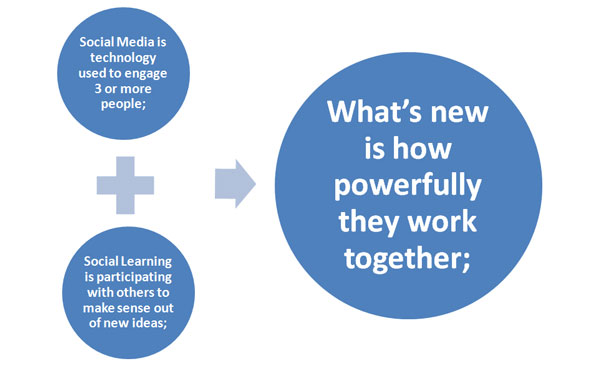 Social Learning + Social Media = Powerfully Working Together by Brent MacKinnon on Social Media Tools for Working and Learning blog. March 7, 2011. “I had an interesting question put forward by a participant in one of my Social Learning & Working Smarter Through Social Media workshops. We were discussing policies to protect staff when they are communicating online with clients or partners. The question brought in the issue of posting on a personal social network sites.The lady posing the questions received many supportive and positive responses to here announcement about a cause she was supporting. What troubled her was the numerous caustic and derogatory comments left by people who were just creeping her site with no intention of adding any value to the conversation.”
Social Learning + Social Media = Powerfully Working Together by Brent MacKinnon on Social Media Tools for Working and Learning blog. March 7, 2011. “I had an interesting question put forward by a participant in one of my Social Learning & Working Smarter Through Social Media workshops. We were discussing policies to protect staff when they are communicating online with clients or partners. The question brought in the issue of posting on a personal social network sites.The lady posing the questions received many supportive and positive responses to here announcement about a cause she was supporting. What troubled her was the numerous caustic and derogatory comments left by people who were just creeping her site with no intention of adding any value to the conversation.”
 Best Social Media and Tech Resources Beyond Mashable by Eva Kaplan-Leiserson on The Faster Times. March 4, 2011. If you read Mashable—and, I hope, me—for your social media fix, you’re off to a good start. But there’s a lot going on in this world, and many other people have excellent info to offer. So I’m going to let you in behind the curtain of the sources I rely on for social media/technology news and commentary.”
Best Social Media and Tech Resources Beyond Mashable by Eva Kaplan-Leiserson on The Faster Times. March 4, 2011. If you read Mashable—and, I hope, me—for your social media fix, you’re off to a good start. But there’s a lot going on in this world, and many other people have excellent info to offer. So I’m going to let you in behind the curtain of the sources I rely on for social media/technology news and commentary.”
The New Social Learning – a review by Clive Shepherd on the Clive on Learning blog. February 23, 2011. “In a word, excellent. I’m not going to pretend I read it cover to cover, because in my case that really would be preaching to the converted. But from what I have seen, this book presents a highly credible review of the arguments for a new social learning, enhanced by technology. It includes plenty of real-life cases that prove the point and a great source of practical ideas. I’m sure I’ll be referring to it for many years to come.”
Classroom Activities for Adult Learners by David Coodin on eHow UK. January 31, 2011. “Most adult students have been out of class for a while; as such, their needs are different from those of younger students. Adult learners may not be as good as children and teenagers at forming new sequences of information, but they are better at putting existing knowledge to new uses, says author and…”
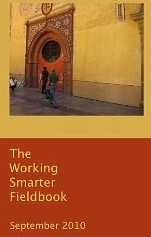 Working Smarter Fieldbook | September 2010 Edition by Jay Cross and the Internet Time Alliance. November 16, 2010. “Where did the 80% come from?…Marcia Conner writes that “Most learning doesn’t occur in formal training programs. It happens through processes not structured or sponsored by an employer or a school. Informal learning accounts for over 75% of the learning taking place in organizations today.” Marcia also notes, “In 1996, the Bureau of Labor Statistics reported that people learn 70% of what they know about their jobs informally.””
Working Smarter Fieldbook | September 2010 Edition by Jay Cross and the Internet Time Alliance. November 16, 2010. “Where did the 80% come from?…Marcia Conner writes that “Most learning doesn’t occur in formal training programs. It happens through processes not structured or sponsored by an employer or a school. Informal learning accounts for over 75% of the learning taking place in organizations today.” Marcia also notes, “In 1996, the Bureau of Labor Statistics reported that people learn 70% of what they know about their jobs informally.””
The New Social Learning – Live Blog by Sumeet Moghe. The Learning Generalist. November 10, 2010. “…This has been a simple, powerful presentation — Thornton May is a tough act to follow and Marcia’s done a great job. I really liked how she’s made the case for social learning and tried to inspire people to get started with bringing in social learning to their lives and their organisations. Marcia’s got a really great personality for someone who’s a self-confessed introvert and I think I have heaps to learn from her as a speaker and an ideator in this space.”
 Do I have to join the crowd and learn about social media? by Lindsey Novak. Harold-Tribune. October 25, 2010. Appeared in print on D17. “Question: I AM IN MY 40S AND IN A good but ordinary type of midlevel job. I take on new responsibility if given it, but I have no desire or drive to get to the top. I can be friendly and social to people at work, but I rather would put my social energy into my life and friendships outside of work.With that said, do I really need to become active in all the social media/self-marketing vehicles? What are they useful for other than mindless chatter and using people for their connections? I see social networking as a time eater and need to decide whether I have to take part in it. Answer, “…Although you have no drive to move to the top in your company, knowing how social networking sites can benefit companies can make you a more valuable employee. In “The New Social Learning: A Guide to Transforming Organizations Through Social Media,” authors Tony Bingham and Marcia Conner share real-life examples of positive outcomes resulting from companies using these networks. Social networking is a smart marketing tool for companies and individuals alike.”
Do I have to join the crowd and learn about social media? by Lindsey Novak. Harold-Tribune. October 25, 2010. Appeared in print on D17. “Question: I AM IN MY 40S AND IN A good but ordinary type of midlevel job. I take on new responsibility if given it, but I have no desire or drive to get to the top. I can be friendly and social to people at work, but I rather would put my social energy into my life and friendships outside of work.With that said, do I really need to become active in all the social media/self-marketing vehicles? What are they useful for other than mindless chatter and using people for their connections? I see social networking as a time eater and need to decide whether I have to take part in it. Answer, “…Although you have no drive to move to the top in your company, knowing how social networking sites can benefit companies can make you a more valuable employee. In “The New Social Learning: A Guide to Transforming Organizations Through Social Media,” authors Tony Bingham and Marcia Conner share real-life examples of positive outcomes resulting from companies using these networks. Social networking is a smart marketing tool for companies and individuals alike.”
The New Social Learning by Tony Bingham and Marcia Conner by Clark Quinn on the Learnlets blog. October 18, 2010. Marcia Conner & Tony Bingham’s book The New Social Learning is, quite simply, a must-read if you are in either responsible for learning in, or running, a business. In short, eloquent, and yet highly readable chapters, they cover both the natural ways we learn, and how the new technologies both support and enhance these capabilities. The focus is clearly on organizational success. After a opening that sets the stage of how the world’s changing, Tony and Marcia go through a series of tools and opportunities in systematic ways: community, video, twitter, wikis, virtual worlds, and face to face events. For each, they provide vibrant examples, core concepts, recommendations, and ways to address criticism.”
Achieve More And Learn Better Through Social Media by Donna Maria on Indie Business Blog. September 20, 2010. “…while every business needs systems and processes, the real differences are made around water coolers and other networking outlets (both online and offline) where people share and engage.”
![]() Marcia Conner on Transforming Organizations through Social Media and Social Learning by Esteban Contreras on SocialNerdia. September 18, 2010. “The book is a good read for anyone interested in learning more about how companies can leverage social technologies and tools to become, well, better companies. I asked Marcia a few questions to go deeper into some of the topics on the book, and here’s what she kindly had to say.”
Marcia Conner on Transforming Organizations through Social Media and Social Learning by Esteban Contreras on SocialNerdia. September 18, 2010. “The book is a good read for anyone interested in learning more about how companies can leverage social technologies and tools to become, well, better companies. I asked Marcia a few questions to go deeper into some of the topics on the book, and here’s what she kindly had to say.”
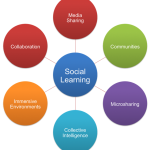 The New Social Learning Isn’t a New Thing by Sumeet Moghe. The Learning Generalist. September 18, 2011. “…While I was reading the book on my Kindle, I was possessed to share all the wonderful insights I was getting from the book. It felt natural to tell my friends and connections about this awesome book. As I’ve posted stuff to my network, I’ve realised how being social is inherent to not just my personality, but also to everyone of us. We’ve always been social learners, and modern social media is just h
The New Social Learning Isn’t a New Thing by Sumeet Moghe. The Learning Generalist. September 18, 2011. “…While I was reading the book on my Kindle, I was possessed to share all the wonderful insights I was getting from the book. It felt natural to tell my friends and connections about this awesome book. As I’ve posted stuff to my network, I’ve realised how being social is inherent to not just my personality, but also to everyone of us. We’ve always been social learners, and modern social media is just h
How Social Media Will Transform Organizations: Book Review of “The New Social Learning” by Neil Vidyarthi on SocialTimes. September 17, 2010. “In its short young history, social media has been referred to as a gimmick, a fad, a tool, a directory service and a meeting place. The problem lies partly in the semantics of the words but also the speed of its growth…As it grows, however, I think we’re realizing that the phenomena of social media is less of a distinct tool and closer to an extension of our personal relationships.”
Author Spotlight: Marcia Conner, co-author of The New Social Learning by Teresa Morrow of Key Business Partners. September 17, 2010. “Below is the interview with Marcia Conner as she shares with us about her, the book and the influence social media has been within her life.”
Leveraging Social Media Tools for Learning by Gautam Ghosh on the Human Resources, Recruiting, and Social Business blog. September 17, 2010. “As a person who’s passionate about learning – as well as a social media enthusiast – I have blogged and talked about how social tools could be used for learning within organizations. So I was quite excited to get a copy of Marcia Conner and Tony Bingham’s book “The New Social Learning”. The book is a great collection of leading edge organizations that are experimenting successfully with various social technologies (like internal social networking, microsharing, video-tagging, communities of practice) to enable their employees to learn and connect with each other.”
Social Media Book List: Competing for Global Dominance and The New Social Learning by Teresa Morrow on Liz Strauss‘ Successful and Outstanding Bloggers site. September 15, 2010. “This book starts off with The New Social Learning Playground Rules (here are just a few rules): 1) No loitering in the playground areas. The value is in participation and engagement. —> SO TRUE! Value comes in with social media with two areas—participation (you must be a part of the networks you are a part of or be sure you are adding value to the conversations)”
Book Review: The New Social Learning by Gina Minks on the Storage According from a Dixie Chick blog. September 15, 2010. “As educators we know we can’t make people learn, that the learner has to own that process. This book is all about ways to use social media to help people make the connections they need to learn. One example in the EMC case study is all about connections. One of the first popular wikis on EMC|ONE (our internal social media site) was about restaurants close to our HQ in Massachusetts. My friend – an instructor – put that wiki up. He had been emailing the info as a spreadsheet to his students at the start of his classes for as long as I’ve known him.”
Book Review: The New Social Learning on the Marketing Java blog. September 14, 2010. “Recently I finished reading a copy of the book from authors Tony Brigham and Marcia Conner entitled, The New Social Learning. For an avid and staunch user of social media tools like me, there might not be a heck of a lot of revelations in the book, but for the person just exploring or getting more familiar with these tools, it serves as a tremendous resource.”
Book Review: The New Social Learning by Christine Livingston on the A Different Kind of Work blog. September 13, 2010. “I hope that the authors, using the essence of their teaching, will stimulate a social learning community around the topic. There are many of us, I’m sure, that would love to be part of the emergence of this new business phenomenon. …” Great comments from readers, too!
The NEW Social Learning – A Guide to Collaborative & Collective Intelligence by Mike Sandstone on the ConverStations blog. September 13, 2010. “…I’ve always tried to look for ways to help create communities of fans and of learners. That’s why the title “The NEW Social Learning – A Guide to Transforming Organizations Through Social Media” had me a bit excited. At times, these types of books are theory sans practice. This one is on the money!”
The Shortest Book Review. Ever by Rani H. Gill on the Wonder@Will blog. September 12, 2010. “…It does exactly what it purports to do — provide a comprehensive guide to social learning. It’s one of those books that is going to become a must-have for learning folks — for the next couple years anyways before it all changes again….If you’re working at the intersection of social media and learning, you need this book in your shelf. End of story.”
Thoughts on The New Social Learning (the book) by Chistian Briggs on SociaLens Zoo Channel. September 12, 2010. “I care about this topic for many reasons. I care because i am a student and a teacher, who cares deeply about how people learn about and change their worlds, often as a part of organizations. I also care because i am a researcher, who wants to get at and explain to others some of the roots behind the actions and interactions of people, in organizations, using technology. Finally, i care because our company SociaLens has made it our mission to help people and organizations to do the right things, the real things, the sometimes hard things, that it takes to thrive in the digital age.”
DorobekINSIDER: The Federal News Radio Book Club selection: The New Social Learning by Chris Dorobek. “I am fascinated by what I call collaborative tools. I continue to believe that these tools are fundamentally altering the way we have done business along a whole array of areas — government being one of them for a number of reasons. This book fascinated me because… the authors spoke to government… and it focuses on doing business better. But in the end, it is about change — and change management. We all talk about how difficult it is to change government.”
Tapping the Potential of Enterprise 2.0 for Workplace Learning by Bill Ives on the FastForward blog. September 1, 2010. “Getting a chance to read this timely work was exciting for several reasons. I began my consulting career in the learning space in the 80s and have remained convinced of its importance for accelerating business performance….But most importantly, it is the first book I have seen to help organizations understand and harness the huge workplace learning potential of social media and enterprise 2.0….I highly recommend this book if you want to make better use of social media and enterprise 2.0, if learning is a passion, or if you want to increase the productivity of your workforce. It is one of the better business books I have seen recently.”
The New Social Learning is the Most Authoritative Guide on the Power… on HR.com. September 1, 2010. “Most writing about social media focuses on how to use it for marketing, but there’s a much larger story to tell, according to Tony Bingham and Marcia Conner, co-authors of The New Social Learning, released this month. This is the first book to help organizations understand and harness social media to improve organizational effectiveness and learning.”
Book Pick for Planners: The New Social Learning by Donna Kastner on the cvent blog August 30, 2010. “If learning is a critical mission for your conferences or meetings, there’s a new book that’s definitely worth a look with ideas to tap social media before, during, and after your event to enhance the learning experience for your attendees….If you’ve been charged with creating more engaging learning content for meetings and extending the learning experience long after the crescendo face-to-face event, this book will help you make it happen!”
The Unintended Consequences of Facebook by Finlo Rohrer on BBC News. July 21, 2010. “Pre-Facebook, the very phrase ‘social media consultant’ would have produced only blank stares from the typical layman. Now, people like Marcia Conner make their living advising companies on how to use Facebook and other social networking sites. ‘The work I do focuses on helping organisations to use social technologies to connect the people in their organisations,’ says Ms Conner, a partner in the Altimeter Group and author of the forthcoming book The New Social Learning: A Guide to Transforming Organizations Through Social Media. ‘They are complementary technologies that can be used to get that same sort of community feeling.'”
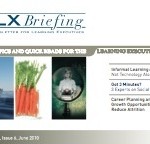 Transforming the Learning Organization [.PDF] in LX Briefing (page 6). June 2010. An interview with Marcia Conner and Tony Bingham about their upcoming book The New Social Learning and the power of social learning. “By bringing together people who share interests and direction, no matter their location, social media has the capacity to transform training into a learning mechanism as natural as it is powerful…”
Transforming the Learning Organization [.PDF] in LX Briefing (page 6). June 2010. An interview with Marcia Conner and Tony Bingham about their upcoming book The New Social Learning and the power of social learning. “By bringing together people who share interests and direction, no matter their location, social media has the capacity to transform training into a learning mechanism as natural as it is powerful…”
The Power of 2 by Dan Pontefract on the trainingwreck blog. June 20, 2010. “Marcia is someone I have looked up to for many years. I’ve always viewed myself as a bit of a learning renegade, pushing the envelope of the old establishment, but Marcia has always been one step ahead of me. Back in 2004, she defined a formal/informal/intentional/unexpected diagram (see here) that was years ahead of its time. Even today, the old training establishment is coming to grips with this piece of prescient thinking. In particular, however, was the ‘unexpected’ side of the quadrant which had to deal with many of the concepts we refer to today in the Web and Enterprise 2.0 spaces.”
Where Social Learning Thrives by Jay Cross on the Informal Learning blog. February 12, 2010. Read this inspiring Fast Company blog post by Marcia Conner. She nails what I have been calling learnscaping.

10 Twitter Users Share Why They Use Twitter by Ari Herzog on his Ariwriter blog. November 20, 2009. “As a follow-up to my blog post describing Twitter in 14 ways , and countless articles since, I feel there is no better time than the present to revisit the question why people use the social media tool.
A Short History of Micro-Messaging from Marcia Conner by Bill Ives on his Portals and KM Blog. July 1, 2009. “…Marcia notes that meaning is bigger than words. The more you know someone, the fewer words you need to convey meaning. In fact, very young children learn meaning before words and often invent their own words before they learn their parent’s language. I was told I had about 50 variations on ugh, each with its own meaning. Parents who pay close attention learn this vocabulary and provide validation to their children that helps with their language acquisition. The best new tools enhance existing means of communication and this is what Twitter does. As Marcia writes, “You have been microsharing and networking since you first asked to be carried and your toys were made of wood.” What is new with Twitter messages “is how they help us do it (forcing compactness and distributing to portable devices) and who we share with (often previous strangers who share our passions).”
The Twitterprise – 2009 is about our Corporate Cultures, NOT the Technology by Brent Schlenker on his Corporate Elearning Strategies & Development blog. April 2009. “…The reason I like the article so much is that it truly gets to the heart of all this 2.0 stuff. After the honeymoon buzz of new technologies wears off, we are still left with the realies of dealing with the people in our organizations. The technologies are USELESS without the complete and total transformation of our internal corporate cultures. And this isn’t something you can just mandate, or solve by sheep dipping the masses in a Learning 2.0 Course. In order for the tools to truly be successful people must USE them on a personal level as well as a professional level. How people do that is completely up to them. Some will engage more than others, but the reality is that they MUST engage at some level.”
“Learning Locally” by Agatha Gilmore in CLO Magazine. February 2009.

